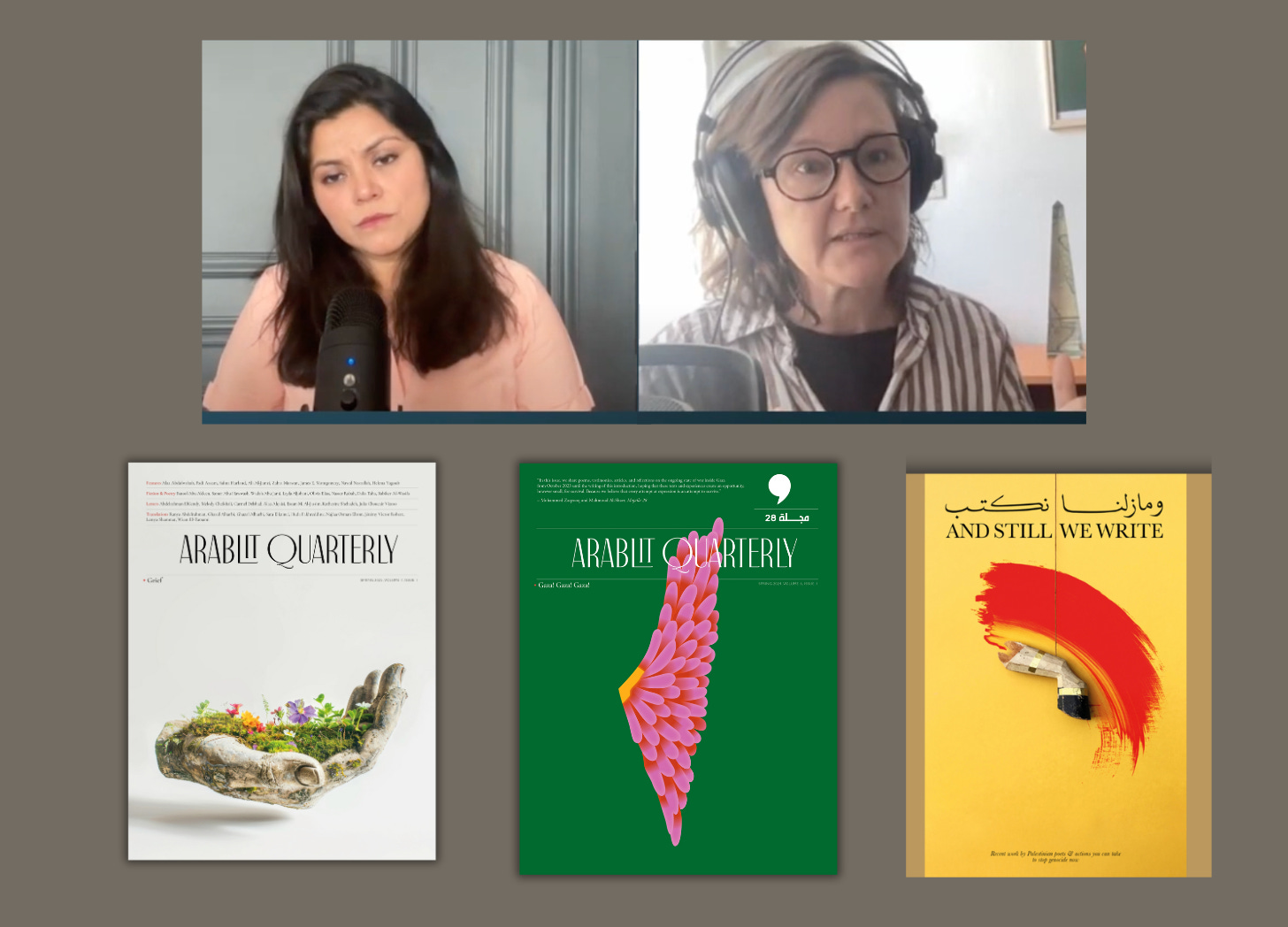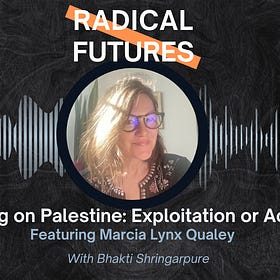Palestinian writing is in the spotlight but is that good?
Marcia Lynx Qualey, the force behind Arablit, in a nuanced and wide-ranging conversation on the politics of publishing about Palestine for an episode of the Radical Futures podcast.
In the latest episode of Radical Futures, I spoke with Marcia Lynx Qualey, the force behind ArabLit magazine, about the uptick in publishing about Palestine in the past year and a half. While such publishing trends are commonly observed in the wake of wars and disasters, there are many reasons why it feels strange, surreal and uncomfortable when it comes to Palestine. Palestinian writing has historically been frozen out of publishing and the speed at which these works are coming out is disorienting especially since the genocide is ongoing and only getting worse. It is, of course, hard not to lean into the faint suspicion that the narrative about Palestine might be changing but it is hard to feel optimistic as Israel starves Gaza and the situation is absolutely catastrophic.
“I think there are a number of ways in which Palestinian literature is in the spotlight,” Marcia explains, “both from a solidarity perspective from a place of people who are outraged, horrified and grieving genocide, and who want to place Palestinian voices at the center, rather than speak about what's happening in Gaza. But at the same time with people very interested in what's happening in Gaza and readers wanting to know, there are publishers who are also making a profit off of this interest.”
Marcia is rightly concerned about the kind of writing this trend is attempting to promote and distribute. “There's some incredible writing that has come out of Gaza in the last year and a half,” she says, but publishers are also rejecting works because they don’t speak to the precise moment, “meaning it's not sort of exactly this kind of talking about famine, or bombing, or a child under the rubble that they were expecting this literature to address.” She worries that large capitalist and media structures “are looking to shrink the literature in way that is not just sellable, but sort of palatable and safe.” There’s a cowardice on display here as “there will be no repercussions” for publishing such safe writing. Luckily, Marcia also speaks about how we might discern between the books that may be exploiting the moment, and those that might come from a place of deep historical and literary understanding about Palestine in addition to empathy, and a desire to amplify voices against the genocide.
More importantly, Marcia spoke about ArabLit’s focus on community building and on providing material support to their writers who are beseiged and living in terror. With people in Gaza atomized, and with their lives completely fractured, putting writers, poets and translators in contact with each other remains the first priority for ArabLit. For example, their most recent issue on “Grief” illustrates that grief and mourning is not about being “alone and sad, but to be together and to propel ourselves forward.” Please order your copy here.
Is literature useless for shaping politics and material lives? I could not help but ask. Marcia replied that literature cannot be transformative unless “we shape it together” because one writer or person can never make a difference. “It’s about slowly moving things and re-imagining connections and re-imagining our world together in conversation over a period of time.”
You can listen or watch this conversation right here👇🏾
Publishing on Palestine: Exploitation or Activism? Featuring Marcia Lynx Qualey
Writer, editor and publisher Marcia Lynx Qualey remarked that “the literature currently in the spotlight, in many languages, is Palestinian” while accepting Ottoway Award for the Promotion of International Literature in 2024. As Israel’s genocide of Palestinians continues, Marcia says that the demand for Palestinian literature has grown exponentially. S…
Love and solidarity❤️🔥
Bhakti Shringarpure





This resonates deeply. When a people are fighting for survival, their stories shouldn’t be reduced to what is most marketable or digestible. Palestinian literature carries history, endurance, and the imagination that survives oppression, not just headlines. I’ve always believed that art becomes transformative when community protects the voice behind it, not the trend. Grief can be connective, and storytelling is one of the few ways we keep humanity intact when institutions fail us.
Marcia Lynx Qualey and Arablit are an amazing antidote. Highly recommend.